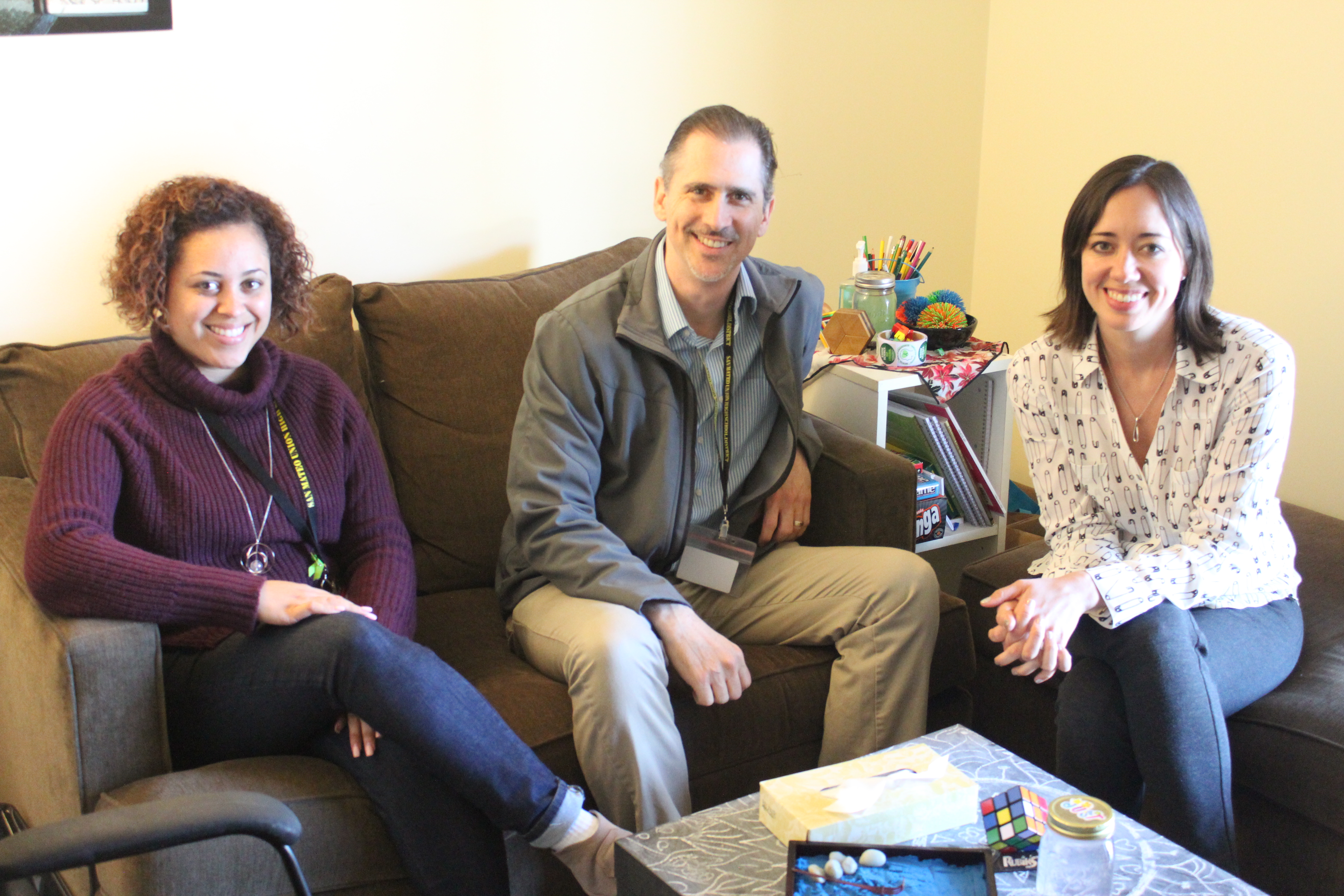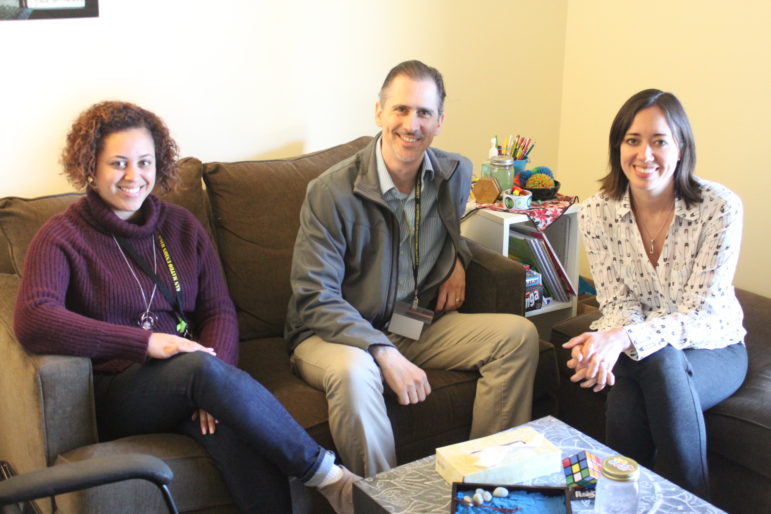
Aragon’s three therapists. Left to right: Staysha Veal, Max Bernstein and Jillian Ma.
According to the National Alliance on Mental Illness, more than one in five teens experience a severe mental disorder. Yet, the Office of Adolescent Health reports only about 40 percent of the three million teenagers suffering from depression sought help in 2015, suggesting that most people deal with their condition alone, either because of stigma or not knowing about available resources.
At Aragon
Aragon has three health and wellness therapists. Max Bernstein shares his time between Aragon and another school. Jillian Ma — located near the health office in Student Services — and Staysha Veal in room 225, work full time at Aragon. All are accessible to all students with any mental health concern on campus, including academic pressure, relationship issues and familial stress.
Ma explains how seeking help can not only help one’s mental health, but also their academic performance. “As you can imagine, it’s very difficult to focus on school if you’re going through a whole lot of emotional things … Our role at school is to really help students address those things so that they can feel emotionally supported enough to perform well at school.”
Setting up a meeting or session with a health and wellness therapist is also easy. They offer three main mental health services: individual counseling, group counseling, and drop-ins. Single appointments or regular counseling can be arranged by simply paying them a visit, and drop-in times are posted on the front of each therapist’s door and are open for students to come in and discuss mental health concerns.
While Ma, Veal or Bernstein may not be able to immediately attend to a student at all times, getting in contact with them is always guaranteed. “We can always be accessed, either just by coming directly to us or putting a note on our door,” explains Ma.
The goal of health and wellness is to create a safe, comfortable environment for students to explain the difficulties they are facing and receive the proper guidance and support. “We want to have a climate of acceptance at Aragon … you don’t have to spill your deepest darkest secrets to us, it’s just a way to be like ‘hey, I’m really stressed, I just need some feedback,’ ” says Ma.

Outside school
If a student is seeking additional help beyond what the school provides, private therapists may be an option, and the health and wellness therapists can provide recommendations for many easily accessible resources in the community.
“We work with different organizations and agencies that provide short and long-term counseling and crisis counseling. If you need to go that route, we can help locate those too,” Ma explains. Pediatricians and primary care physicians, she says, are also good sources for mental health services.
Another option for mental health support is contacting the different hotlines for almost any emotional or psychological crisis. There numbers can easily be found with a quick internet search. Many of the crisis hotlines such as the National Suicide Prevention Hotline, 1-800-273-8255, operate 24/7 and provide completely confidentiality to the caller. The caller is immediately connected to a person on duty at the nearest crisis center that can provide support.
Awareness
Though the resources for mental health services are abundant and easy to access, awareness is still vitally important in ensuring healthy emotional and psychological condition. Sophomore Olivia Enriquez realized this, and started an initiative called Stride For Awareness after she started feeling overwhelmed by school and responsibility and saw her peers struggling as well. The organization strives to bring awareness on important topics in community, and right now, she is focusing on shedding light on the importance of properly understanding mental health and how one can seek help.
Enriquez explains what can hinder one from seeking assistance. “Most of the [mental health] services are really really helpful. If you’re just open to them, they can connect with you, they’re willing to help, but there are just people who are scared and afraid to ask for help, or embarrassed. [I understand that,] because sometimes I am embarrassed to ask for help.”
Veal notices this fear and shame as well. “There’s a huge stigma around mental health and some students feel like it’s a weakness … maybe they feel like it’s taboo, like you shouldn’t talk about your business with other people.”
Many have been trying to tear down this stigma, and May — being mental health awareness month — has seen an increase in initiative. Enriquez and Stride For Awareness partnered up with San Mateo Police Activities League to host a two day event on May 20 and 21, which featured two guest speakers discussing student wellness on the first day, and a five kilometer run and a resource fair on the second day.
Enriquez hopes to make a difference in the way people see mental health and illness. “I hope people will [become better educated about] student wellness and … all the resources that are available to them [like the] National Alliance of Mental Illnesses; I had no idea about that before. So I think that if you just get really aware about mental illnesses and mental health as a whole, you’ll be more aware about the resources that are available to you … and you can find comfort in that,” says Enriquez.
She, like Ma, Veal and Bernstein work to break the stigma around seeing a therapist and encourage those who might be suffering from emotional troubles to seek help. They urge students to see what mental services, support and resources really are: not a weakness, but a strength.



